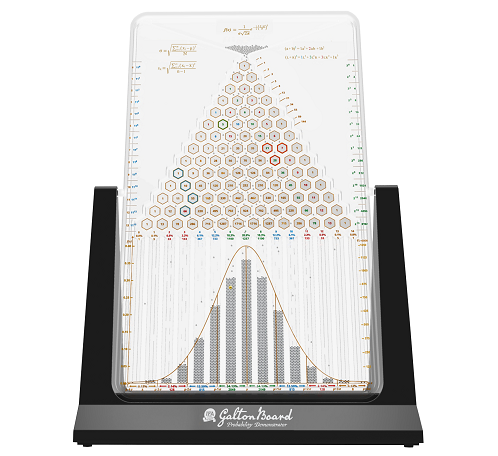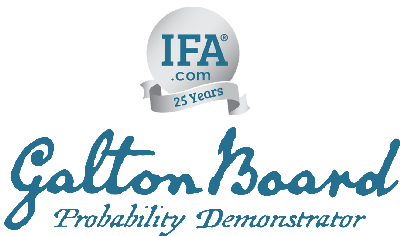Investment management isn't just about picking the best individual portfolios of stocks and bonds. As part of our fiduciary mandate to put each client's interest first, Index Fund Advisors makes sure that fund companies we choose to work with hold corporate managers to the same ethical standards.
This means our investment committee realizes that a strong track record in corporate governance over time is just good business. As IFA's favored asset management shop, Dimensional Fund Advisors, puts it: "stronger governance practices generally will be reflected in higher stock prices through a combination of lower discount rates and higher cash flows."1
The bottom line, in our view, is that IFA wants to invest in corporate managers who make sure their shareholders are well-represented. This means hiring an experienced and fairly compensated board of directors, and one that minimizes conflicts of interests between shareholders and management. When conflicts do take place, we place confidence in boards that demand transparency and responsibility by those at an organization's highest levels.
Maintaining a good record in corporate governance, however, is a rather broad issue to tackle. While IFA can track from a big picture standpoint news related to how companies might be generally doing at any given time, selecting the right fund management shop to partner with is critical to monitoring such issues. After all, these are the professional asset managers who stand at the front lines in the ongoing fight to improve how companies treat shareholders.
We've written in the past about why Dimensional, which is commonly known by its acronym of DFA, makes sense for our clients. In our view, this fund family best utilizes the most significant body of academic evidence guiding IFA's portfolio construction process in putting together globally diversified and index-based asset allocations for investors. In short, DFA takes advantage of key findings of Nobel Laureates like Eugene Fama, Myron Scholes and Robert Merton to design funds around factors that such research has uncovered as driving stock and bond returns over time.
But we're also impressed with DFA's work to ensure that our investors are putting their hard earned money into shares of equity and fixed-income funds guided by proper corporate governance standards. Along these lines, the fund company has established a dedicated corporate governance group, which has built a record of activity in this area. In fact, that internal effort has led to several policy reviews, which in-part state:
"We seek to impact governance in several ways, including through proxy voting and listening to companies held in the portfolios we manage. We also seek to improve internal processes through research on governance matters and participation in industry surveys and events." 2
To help investors, DFA has been proactive about identifying and prioritizing corporate governance issues. Below is a table we've built from Dimensional's own research on the topic to help breakdown major areas of concentration in which its team is working to improve for investors.
Key Issues in Corporate Governance
How effective is a company's board of directors?
Directors need to look after the interest of shareholders in a "rigorous, committed and independent manner." In this regard, fund managers should keep an eye on how boards are put together and whether directors are skilled at managing risks related to defusing conflicts of interests with their shareholders.
What poison pills and related takeover provisions are baked into the cake?
A company might put into place a shareholder rights plan that includes poison pills to dilute ownership if a takeover takes place. In some cases, staggering board members' terms can also be used to protect entrenched positions. This could be an issue if a merger or acquisition comes along that could prove beneficial to shareholders.
If a proxy fight breaks out, what actions are needed to protect fund investors?
In some cases, shareholders will revolt against directors by trying to vote out a member and/or bring in a fresh face. Analyzing differing agendas of both current management and shareholders has been listed by DFA as a top priority when proxy battles break out at key companies in which its fund investors hold a stake.
How much are board members paid?
Not only is the level of pay important to DFA's corporate governance team, but it also studies how directors are compensated for their work. When pay is structured properly, the team has pointed out that executive compensation can be a means to align interests of a company's management to those of their shareholders. Red flags raised by DFA in its research include: excessive pay that doesn't appear to be well-aligned with financial performance; incentive packages that can inspire too much risk taking; and severance packages that don't reflect the best interests of shareholders.
Are shareholder rights adequately documented and reviewed?
A priority of management should be proper documentation and establishment of appropriate policies by directors outlining specific rights and responsibilities to protect a company's shareholders. Clear rules relating to shareholder voting procedures and timely disclosure of information are issues that DFA's corporate governance analysts find as important practices for boards to tackle.
Do any outstanding social risks prevail?
Managing risks for shareholders can include evaluating corporate policies in terms of the makeup and pay of a firm's workers. Social issues related to markets that a company is involved with and a major player in can also play a role in reviewing governance practices, DFA suggests in its study of such matters. Not taking such social risk factors into account, its research cautions, might lead to loss of assets (i.e., stock prices) or heightened discount rates for shareholders.

The DFA Corporate Governance Committee is made up of senior executives at the firm as well as leading academics. The group meets every quarter and on an ad-hoc basis, according to company representatives. Since 2016, Dimensional has posted updates on its site on an ongoing basis regarding such issues. It also provides IFA with research regarding corporate governance activity undertaken each year by its staff.
So let's take a broad overview of some of the general points-of-concern DFA has pursued over the years for investors:
- Classified boards. DFA supports a general strategy of enabling shareholders to be given the right each year to vote on an entire slate of directors. As a result, it encourages boards to conduct annual elections for all sitting directors.
- Related party transactions. These are deals involving transfers of value from shareholders to management, or parties connected to management. DFA has long maintained such transactions can prove problematic on a case-by-case basis. In past research, Dimensional's analysts have pointed out that even transactions that have seemed beneficial at first glance resulted in reducing shareholder value by raising concerns hinting at some sort of impropriety. Furthermore, they have taken a public position that any related party transactions approved by boards of directors need to be fully disclosed in a timely fashion to investors.
- Best industry practices. The corporate governance policy adopted by Dimensional aims at promoting industry best practices in regards to minimizing undue limitations on shareholder rights. Examples include: majority approval of the election of new directors, not just a simple plurality; majority (instead of supermajority) for other votes on issues such as mergers and amendments to corporate bylaws; rights for shareholders to call special meetings and take action by written consent; and avoidance of dual class share structures.
- Anti-takeover provisions. This can't be stressed enough — DFA makes no bones of a preference to vote shares of the portfolios it manages against poison pills. Such a stance includes using its voting rights on behalf of investors to fight directors who don't consult with shareholders about using such a potential anti-takeover measure.
As a long-term investor in DFA funds on behalf of our clients, IFA has confidence in Dimensional's commitment to positively influence a company's governance practices. As with our investment mandate, this is an asset manager who impresses us with a common sense of the importance to act in a fiduciary role for shareholders.
Footnotes:
1 Statement of Corporate Governance Policy, Dimensional Fund Advisors, November 2019.
2 Dimensional Fund Advisors, "Dimensional's Approach to Corporate Governance," April 2019.
This is not to be construed as an offer, solicitation, recommendation, or endorsement of any particular security, product or service. There is no guarantee investment strategies will be successful. nvesting involves risks, including possible loss of principal. IFA Index Portfolios are recommended based on time horizon and risk tolerance. Take the IFA Risk Capacity Survey (www.ifa.com/survey) to determine which portfolio captures the right mix of stock and bond funds best suited to you. or more information about Index Funds Advisors, Inc, please review our brochure at https://www.adviserinfo.sec.gov/














